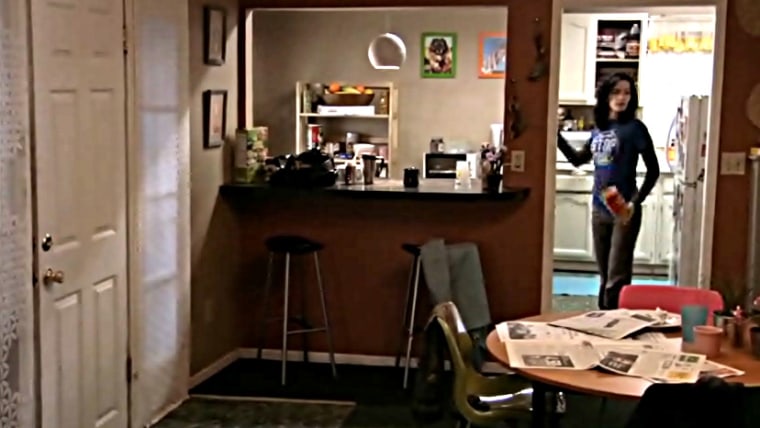Next month will see the Myspace TV debut of “Quarterlife,” a Web series that follows the fictional adventures of twenty-something creatives searching for love, gainful employment and the meaning of life. What is unusual about Quarterlife is that its creators are two Hollywood veterans, Marshall Herskovitz and Edward Zwick, known for both television — “Thirtysomething,” “My So-Called Life” —and feature films like “The Last Samurai” and “Blood Diamond.” They are, moreover, investing the biggest budget yet for an Internet production. Quarterlife thus promises both high production values and likely far more critical attention than any Web series to date.
There have, of course, already been numerous Web serials, ranging from better-known titles like Lonelygirl15 and Michael Eisner’s "Prom Queen" to dozens of more obscure productions. Most feature young, unknown actors who are alternately angsty (if male) or hot (if female). And while the genres range from comedy to thriller, the story is always delivered in many individual “Webisodes,” each no longer than a few minutes.
Other similarities have already emerged. Characters in Web serials often advance the plot by posting video blogs, so there’s a lot of soulful staring into Webcams; by now at least one acting class in Los Angeles must be teaching Webcam monologues. The serials also usually give their main characters faux MySpace pages, through which viewers can interact with their fictional favorites, plus online forums to let fans exchange comments with each other.
"Quarterlife" departs from the pattern in several ways. For starters, each episode runs about eight minutes. At the least, longer episodes should provide a smoother story: Webisodes usually end with cliff-hangers, and watching a story with dramatic crescendos every two minutes can be exhausting. "Quarterlife" will also have its own Web site, with character blogs and forums, but in an interesting twist the site will also offer various tools and advice for viewers who are trying to pursue creative careers themselves. In that sense, "Quarterlife" might be a work of fiction that would not only inspire but also facilitate a new life.
All this activity begs an interesting question: will the Internet transform storytelling as much as it has journalism or pop music? In one sense, the fundamentals of a good story are timeless. But how stories are told has changed dramatically over the centuries, from the ancient oral tradition to the rise of the novel and then, last century, the advent of motion pictures, radio and finally television. (It’s interesting to note that each of those new narrative forms began with serials—from Dickens’ serialized novels to the "Perils of Pauline" to, well, "Quarterlife.")
What’s new about storytelling on the Internet is that it introduces the possibility of easy interactivity. Unfortunately, back in the 80s, interactive storytelling started off on the wrong foot. The first experiments gave the audience the power to choose how stories ended — entire theaters were actually wired with voting switches at every seat. But it turned out that the audience wasn’t really interested in choosing the ending — that’s what storytellers are for.
Effort then shifted to adding story elements to computer games, which proved a somewhat more fruitful path. Earlier this month, the Writers’ Guild of America, which traditionally represents film and television writers, announced it would create an award category for best computer game script. But even the best-crafted video-game story must still take a back seat to the game itself — because in the end, play, not narrative, is what gamers buy.
It may prove better to stick with conventional narratives — linear stories that proceed from A to B to C — but then take advantage of the Internet’s facility for hyperlinked detours. Imagine a conventional video narrative that you can freeze at any point and then, with a click of the mouse, explore what a particular character is thinking. Then, with another click, the narrative resumes. And so a new option arises for the story-teller: mixing narration with exploration. The question that remains is whether audience wants to interact, or would they rather just be told the story?
In an experiment at the American Film Institute’s Digital Content Lab a few years ago, the producers of Showtime’s "The L Word" created an interactive version in which audience members were matched up with favorite characters, who then provided additional insight into key story moments. In a sense, that’s what today’s Web serials do with their fictional blogs: provide a way for the audience to learn about a character outside the conventional narrative.
It’s still clearly very early days for Internet storytelling, but interest in Hollywood runs high. In mid-October "Quarterlife" co-creator Herskovitz appeared at a Producers Guild panel discussion where his colleagues bombarded him with questions about everything from the advertising model for "Quarterlife" to how the Hollywood unions adapted to working on Internet terms.
Herskovitz was candid about just how experimental his work was. “When I started this a year ago,” he said, “I decided that each episode would be six to eight minutes long. Everybody said, ‘You can’t do that, Internet video can’t be longer than a couple of minutes.’ But that’s just something someone made up: we don’t really know. And if eight minutes isn’t right, we’ll try something else.”
It’s reminiscent of a story told about Tolstoy who, near the end of his life, saw a demonstration of the Lumiere brothers’ first primitive movies. Afterwards the great novelist simply said: “I was born fifty years too soon.” Today’s fledgling Internet storytellers need not say the same.
